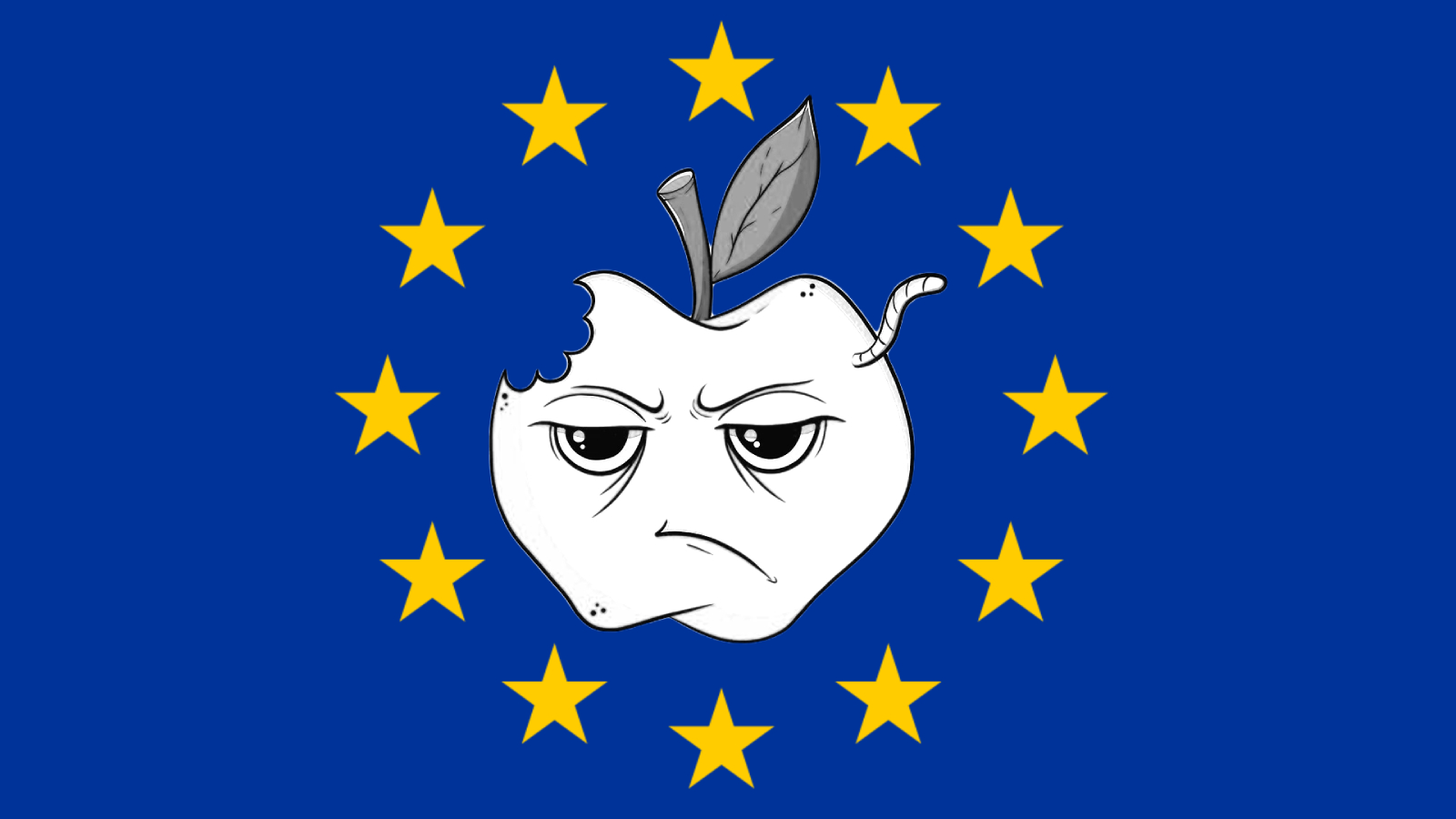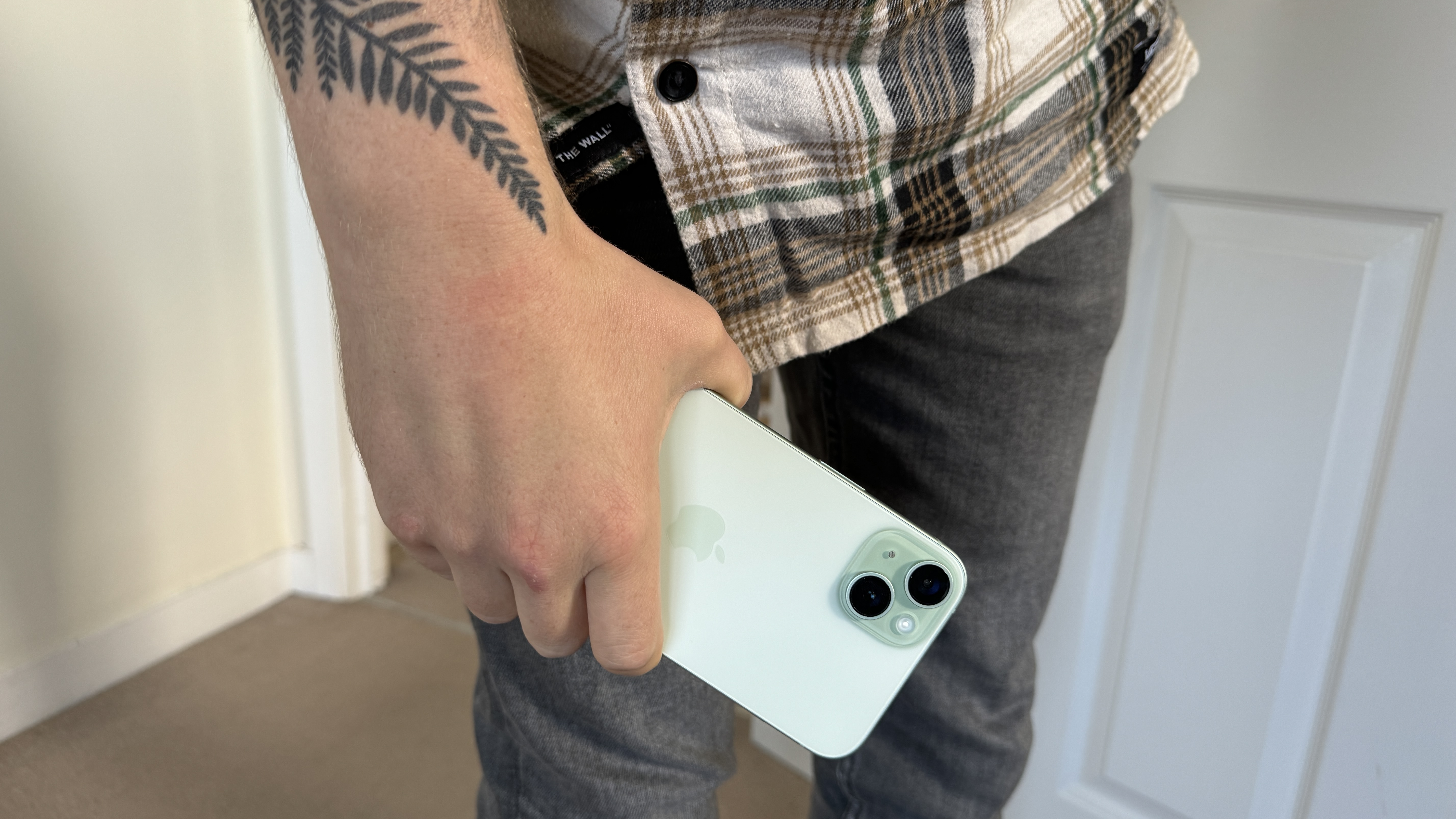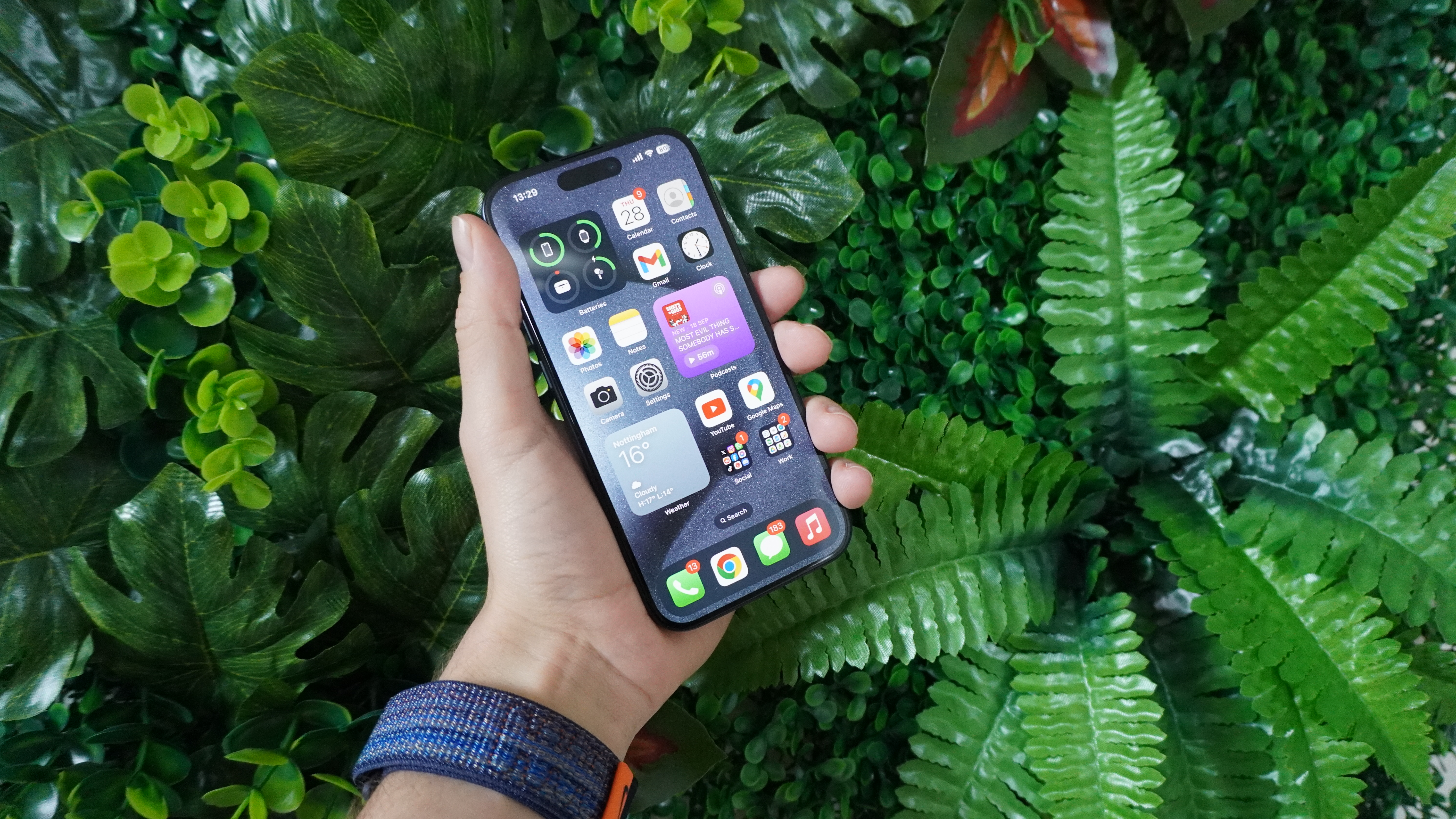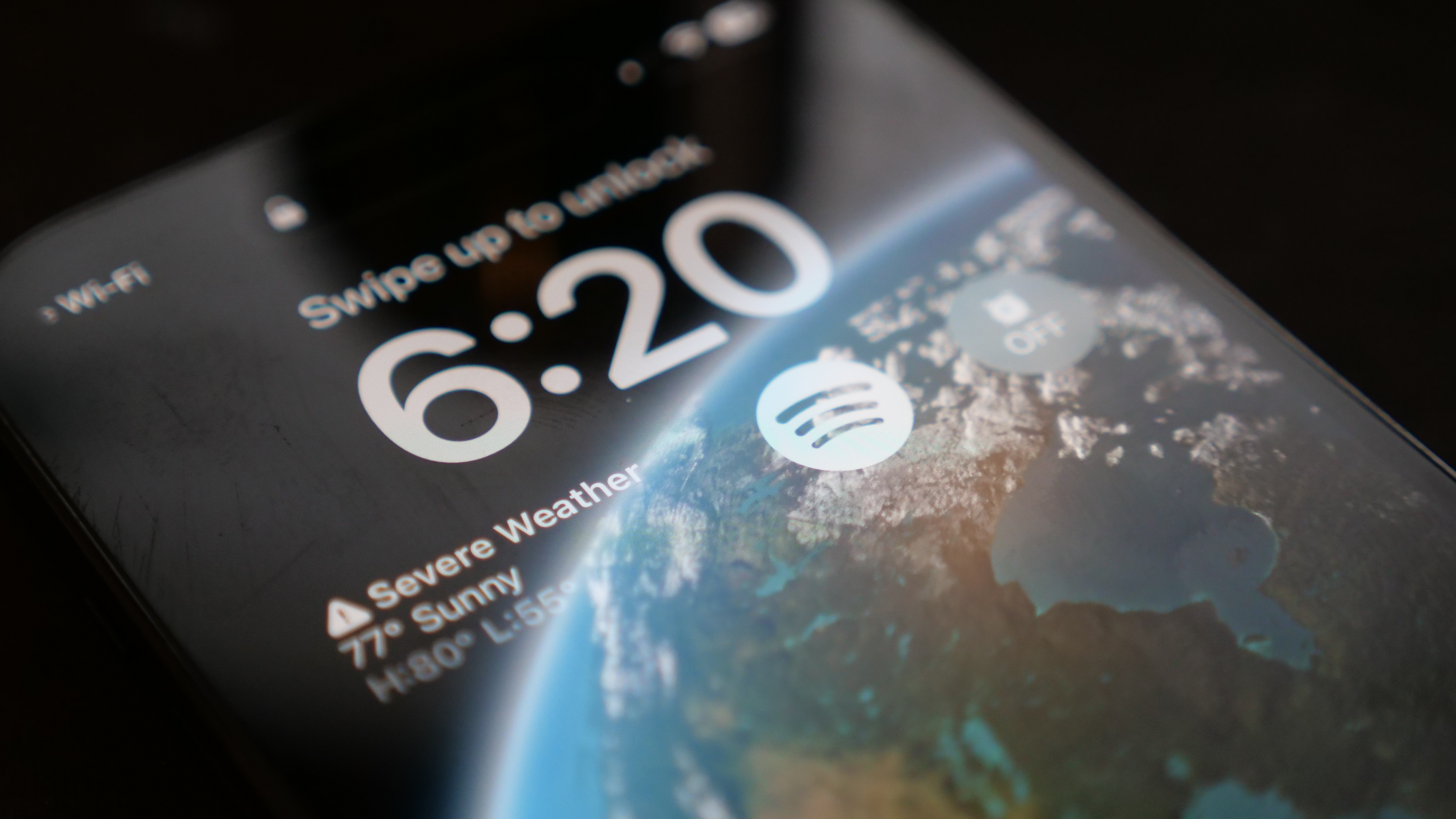Apple launches an alternative marketplace app to get the EU off its neck
EU legislation forces Apple to create third-party marketplaces

Sign up to receive The Snapshot, a free special dispatch from Laptop Mag, in your inbox.
You are now subscribed
Your newsletter sign-up was successful
Strap in, iPhone users! The App Store's walled garden is about to get some cracks as Apple adjusts to the EU's new Digital Markets Act. Apple has announced that come March, iOS 17.4 will throw open the gates for alternative app marketplaces in the 27 EU countries. No more single-source iOS app shopping — you'll be able to browse and download directly from these third-party marketplaces.
It's not a complete free-for-all, though. Apple will still vet these marketplaces (think bouncer at the velvet rope), and you'll have to actively opt-in to download apps outside the App Store. But once you're in, the gloves come off. Apps that wouldn't dare enter the official App Store due to, "creative licensing" of Apple's guidelines, could become fair game. And interestingly enough, you can even make your favorite non-App Store marketplace your default, shaking things up even further.
This could be a brave new world for iOS, or you could find yourself living in a malware hellscape (although malware scanning will be a requirement of these alternative app stores), but now the choice is yours. While some might miss the curated comfort of the App Store, others will relish the freedom (that Android users enjoy) and the potentially wider app selection. One thing's for sure: things are about to get interesting in the land of iPhones (via The Verge).
More options
Developers gain not only opportunities but also options. For developers in the EU, the iOS app landscape is shifting. While the App Store will clearly remain the primary avenue, third-party marketplaces can now enter the scene.
The choice becomes yours: stick with Apple's familiar in-app payment system (with a 3% processing fee) or explore alternative payment options through these new marketplaces. However, Apple isn't relinquishing control entirely. Apps must still pass their security checks and distribution happens through their infrastructure. Think of it as a regulated expansion, not a wild west free-for-all.
In essence, developers gain flexibility and potentially lower fees, while Apple retains some control and ensures user safety. While this is still not the freedom that Android users enjoy, it's a revolutionary change for the locked-down iOS world, one that could reshape the iOS app ecosystem in the long run if it extends beyond the EU.
Also, with Apple vetting third-party marketplaces and apps, it should cut down on the malware, and actions of threat actors, which can be major concerns for unregulated Android app stores.
Sign up to receive The Snapshot, a free special dispatch from Laptop Mag, in your inbox.

The cost of doing business with Apple going forward
For in-app purchases, ditching Apple's payment system means a lower commission: 17% instead of the usual 30%, dropping to a mere 10% for smaller developers. Opting for Apple's payment processing adds a 3% fee, though. And for mega-popular apps (think over a million EU installs annually), a new €0.50 annual fee per install kicks in. But Apple assures us this affects less than 1% of developers.
Beyond payments, Apple is loosening its vise-like grip on default apps. Alternative web browsers and game streaming services join the party, and users get to choose their default browser right from the Safari welcome screen. It's a new era for iOS in Europe, with developers and users both reaping the benefits of increased competition.

The power of the EU DMA legislation
The EU's Digital Markets Act (DMA) is a legislative muscle flex for sure, prompting significant changes to Apple's iOS ecosystem in Europe. First the EU slayed the Lightningt port and now this.This shake-up revolves around two key areas: app distribution and in-app purchases.
Starting in March Apple must open the doors for alternative app stores to join the App Store as legitimate avenues for iOS app distribution. This means users gain more choice, while developers escape Apple's sole gatekeeper role. Notably, sideloading apps becomes a reality, offering greater flexibility beyond the curated App Store experience.
This reshuffling of the payment deck allows evelopers to gain control over in-app purchases, choosing between Apple's system (with a 17% or 10% commission, depending on size) or integrating alternative payment processors. However, Apple still takes a bite, charging a 3% fee for using its processing infrastructure. A new €0.50 annual fee per install kicks in for highly successful apps (exceeding 1 million EU installs annually).

Goodbye Apple Tax
These changes address a serious point of contention for developers who've long criticized Apple's dominance and hefty App Store commissions. Spotify, a vocal critic, plans to reinstate in-app purchases in the EU under the new rules. Whether they'll be happy with the 17% commission remains to be seen, considering their opposition to Apple's 27% alternative payment fee in the US.
While the impact on user behavior is uncertain, the EU's DMA marks a turning point. Android's more open ecosystem already allows sideloading and alternative app stores, but iOS's shift signifies a significant crack in Apple's tightly controlled environment. Whether users flock to alternative options or remain comfortable within the Apple walled garden remains to be seen. The battle for app and payment dominance is entering a new chapter, and Europe is leading the charge for a more open mobile landscape.
While many companies in recent years have bristled at Cupertino's "Apple Tax," the DMA now creates regulations and forces Apple to play fairly. We're sure the white-haired Pope of Cupertino is thrilled with losing another battle with the EU, but he and Apple always find a way to come out on top, so in the long run, we know it will have little effect and probably will lead to larger profits.

Mark has spent 20 years headlining comedy shows around the country and made appearances on ABC, MTV, Comedy Central, Howard Stern, Food Network, and Sirius XM Radio. He has written about every topic imaginable, from dating, family, politics, social issues, and tech. He wrote his first tech articles for the now-defunct Dads On Tech 10 years ago, and his passion for combining humor and tech has grown under the tutelage of the Laptop Mag team. His penchant for tearing things down and rebuilding them did not make Mark popular at home, however, when he got his hands on the legendary Commodore 64, his passion for all things tech deepened. These days, when he is not filming, editing footage, tinkering with cameras and laptops, or on stage, he can be found at his desk snacking, writing about everything tech, new jokes, or scripts he dreams of filming.
